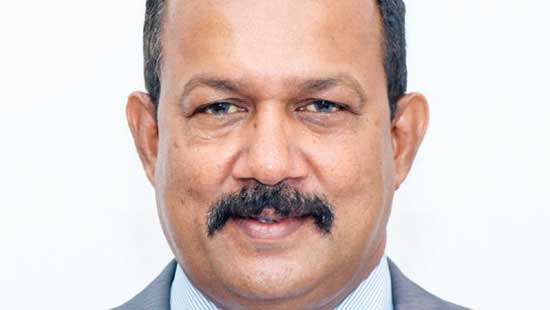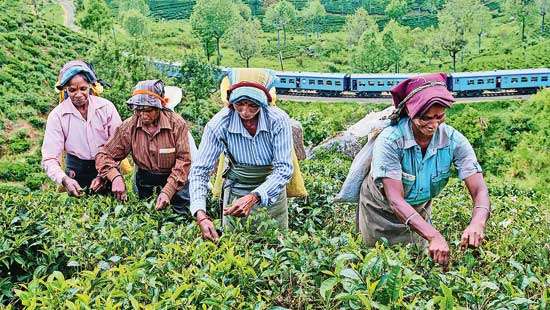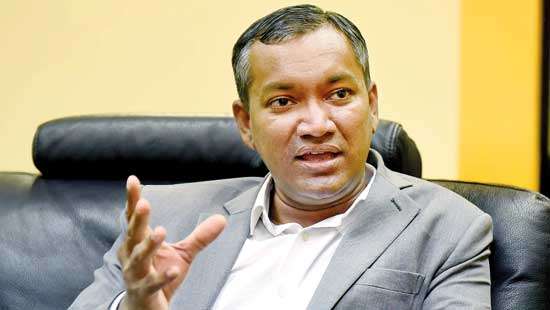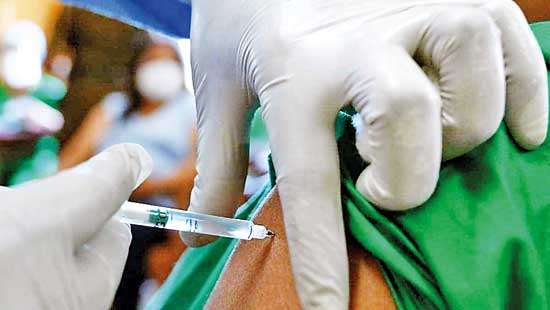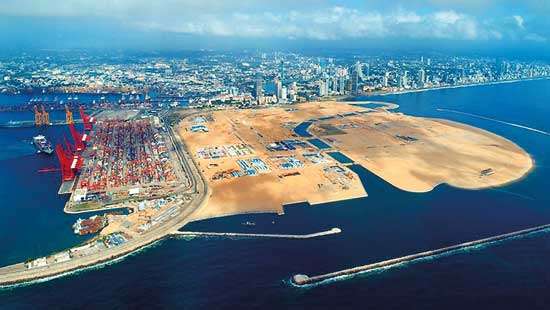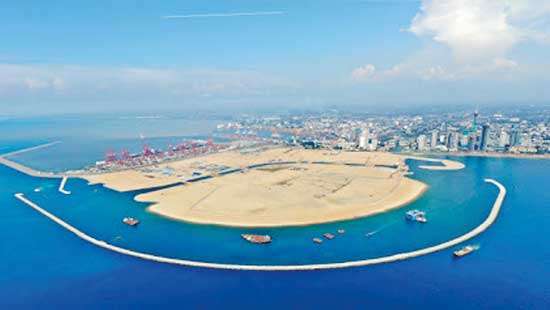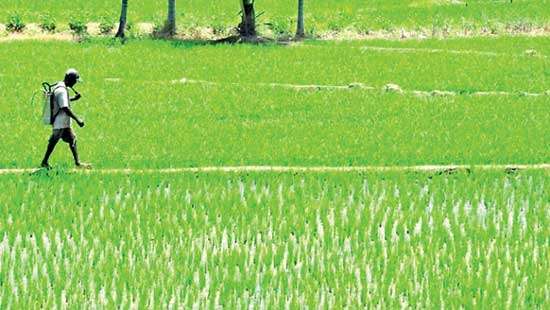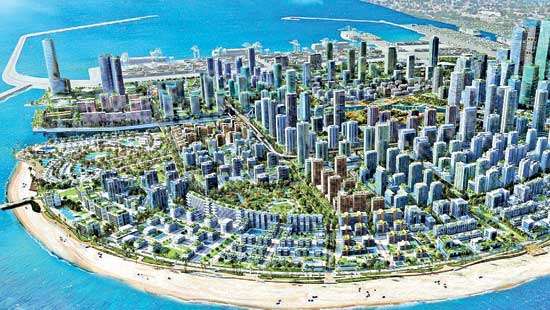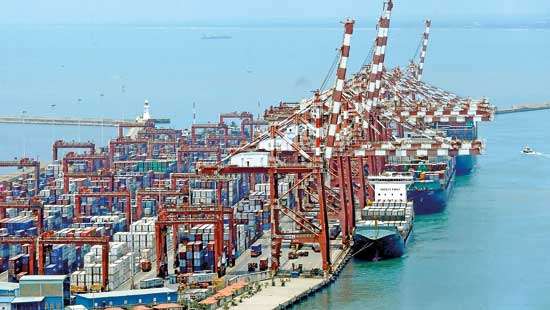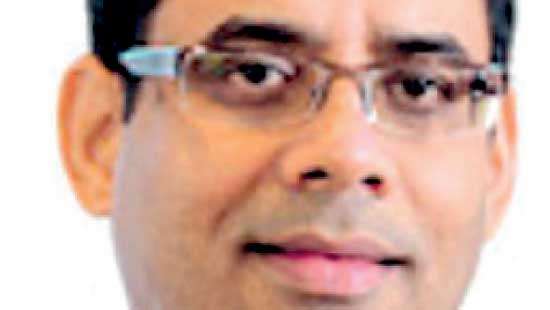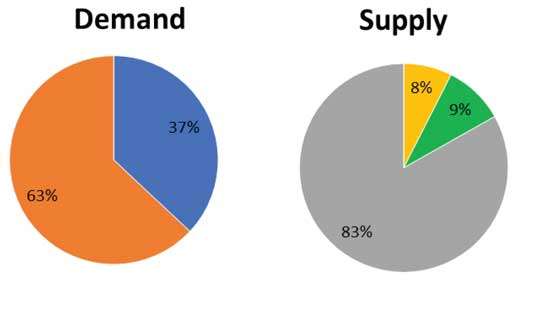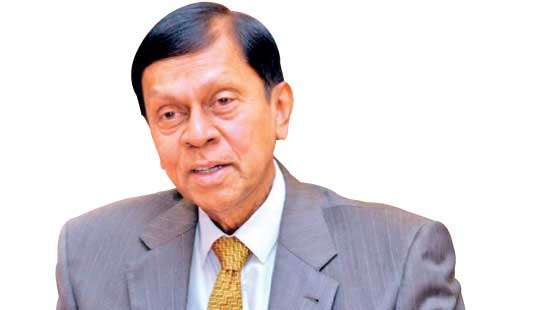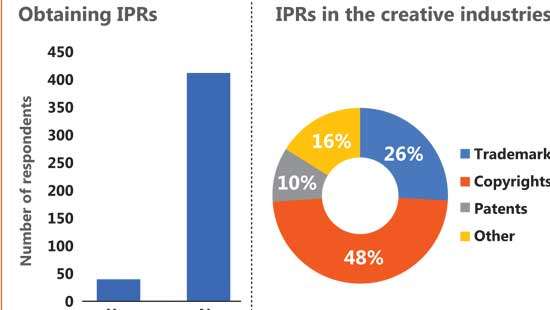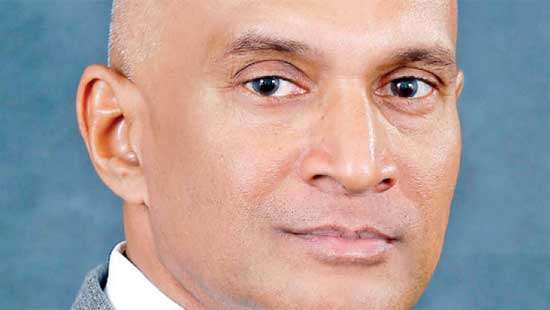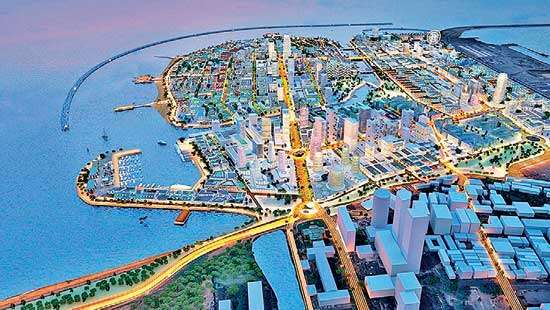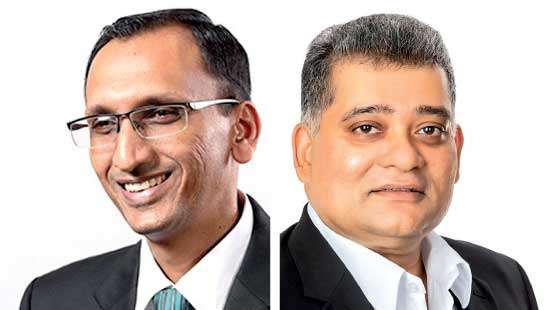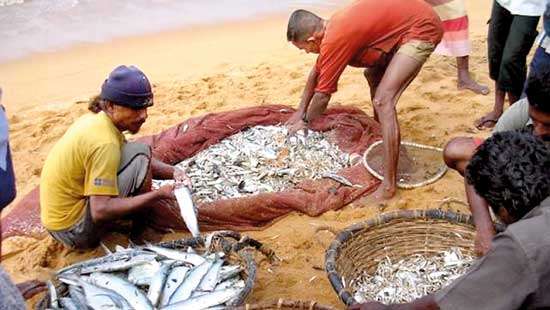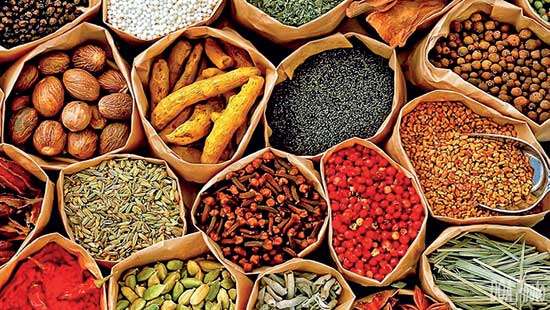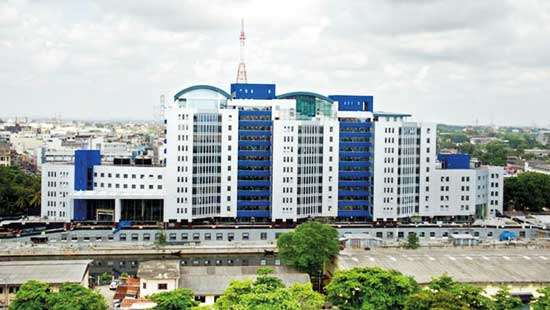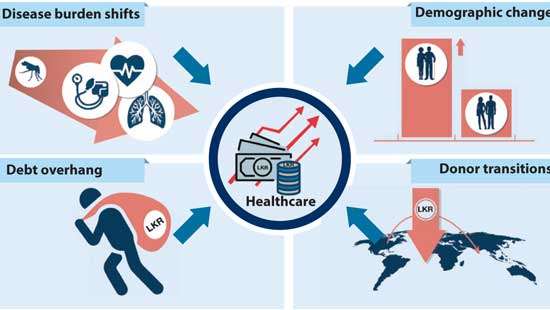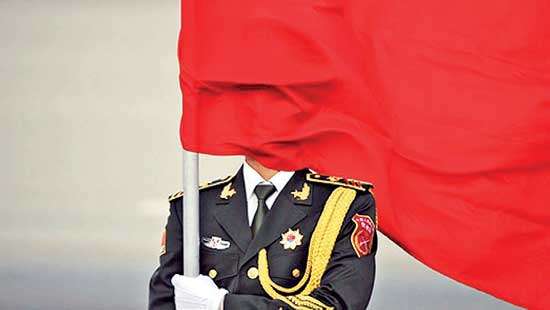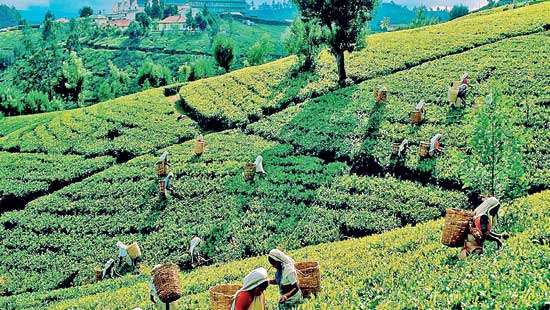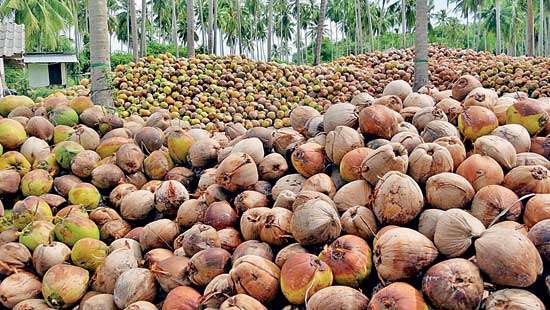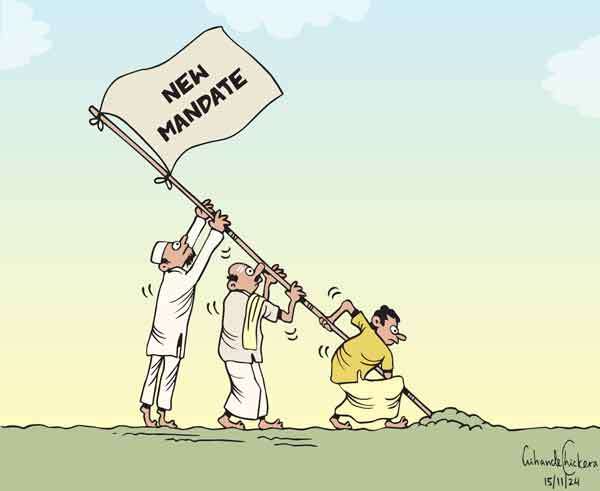Features
Reply to Maliyadde on ‘Interest rate policy: Is it a punitive measure?’
20 May 2021
 0
0
It was with some amusement that I read the article titled ‘Interest rate policy: Is it a punitive measure?’ written by Chandrasena Maliyadde, which appeared in the Daily Mirror on May 17, last Monday. It is a critique of my article, ‘Low interest rate policy punishes savers’, published in ‘My View – Money and Banking’ column in Daily FT of 25 March 2021 (http://www.ft.lk/columns/Low-interest-rate-policy-punishes-savers/4-715286).
Digitalisation the way forward for Sri Lanka
20 May 2021
 0
0
In early 2020, when the COVID-19 lockdown began, Sri Lanka’s food supply chain was significantly disrupted, leaving farmers and consumers to face the adverse effects of the pandemic. Wholesale and retail markets were closed and traders were encouraged to deliver food items directly to doorsteps following strict health guidelines.
Sustainable solution to declining tea production, export revenue and livelihood issues
18 May 2021
 0
0
The word ‘sustainability’ is often distorted without being used in ecological context to get its proper meaning. In simple terms, we have the responsibility to protect the right of future generations to live in a safe environment.
Gearing up SL to become a digital economy in smart and secure way: TRCSL
12 May 2021
 0
0
Fast-tracking development is at the core of all efforts in Sri Lanka’s journey towards progression and with technology evolving at a rapid pace across the world, the island nation has acknowledged and understood the importance of getting onboard the digital bandwagon sooner than later.
How should Sri Lanka Finance COVID-19 vaccination rollout?
06 May 2021
 0
0
An effective vaccination strategy is a necessity for countries to move beyond COVID-19. However, it also requires careful policymaking to balance the financial cost of purchasing and delivering vaccines while stimulating economic growth.
Like Singapore to ASEAN and Hong Kong to China, Colombo Port City is gateway to South Asia
04 May 2021
 0
0
Ahead of the parliamentary debate on the Port City Economic Commission Bill, Director – Sales and Marketing of the Port City Yamuna Jayaratne spoke to Mirror Business about the economic importance of the project and the plans in place for its attraction. Excerpts of the interview are as follows.
Sri Lanka tourism on reverse gear with proposed new Act
30 Apr 2021
 0
0
There’s mounting opposition from all fronts against the government’s plan to change the existing Tourism Act. Having been a member of the team that helped draft the current act around 15 years ago, I felt that I should also lend my voice to the ‘chorus of objections’.
Palm oil ban in Sri Lanka: Is it sustainable?
30 Apr 2021
 0
0
Sri Lanka’s edible oil market has received considerable attention in recent weeks due to a series of events: the banning of palm oil importation in a bid to promote the coconut industry, detection of aflatoxins in imported coconut oil, importation of coconut kernel chips, issuing licence for palm oil imports and banning of oil palm cultivation.
Sri Lanka eyeing to draw Omani and Qatari investments to rupee bonds: Cabraal
29 Apr 2021
 0
0
The State Minister of Money & Capital Markets and State Enterprise Reforms Ajith Nivard Cabraal recently completed a visit to Oman and Qatar as the special envoy of Prime Minister Mahinda Rajapaksa, heading the country’s delegation to the oil-rich two Middle-Eastern nations.
Our aim is to take Chrissworld to a billion rupee top line as the first step: Chairman
27 Apr 2021
 0
0
The Colombo Stock Exchange (CSE) has approved, an application submitted by Chrissworld Limited, for the listing of its Ordinary Voting Shares by way of an offer for subscription, and Initial Public Offering (IPO) is due to be opened on April 27th. This is a distinct IPO as it is the first company to be listed on the Empower Board of the CSE. Following is a brief interview with Chrissworld Chairman Christo Perera.
The Colombo Port City we need
23 Apr 2021
 0
0
Deng Xiaoping, China’s great reform leader, faced a serious problem in the 1970s. Thousands of young Chinese were crossing to Hong Kong, risking their lives. Rather than cracking down on the migrants, Deng sought to understand why they were migrating. Clearly the economic opportunities in Hong Kong were greater than in mainland China.
Sri Lanka’s present and future fortunes intrinsically linked to ocean resources
21 Apr 2021
 0
0
The current and future prosperity of Sri Lanka is intrinsically linked to its coastal, marine and mineral assets or neglected ocean resources. Fisheries and tourism can be two main pillars of its gross domestic product (GDP) economy and source of employment.
Sri Lanka at GSP Engagement Week Virtual Conference – An Overview
19 Apr 2021
 0
0
During the Week of 22 - 25 March, the GSP Hub which is a European Union (EU) funded project launched in 2020 hosted an important virtual engagement relating to the EU’s Generalised Scheme of Preferences (GSP)to increase awareness, transparency, and to engage with stakeholders of GSP.
Proceed with caution: Is Sri Lanka’s approach to import substitution sensible?
12 Apr 2021
 0
0
In the immediate aftermath of the onset of the COVID-19 pandemic and the unprecedented health and economic crises it unleashed, there was a widespread backlash in sentiment against globalisation and open economic policies. The greatly increased human mobility associated with these phenomena was blamed for the rapid spread of the virus to all parts of the globe.
Sri Lanka’s health financing challenge: Why smarter spending is key
08 Apr 2021
 0
0
Across the globe, the magnitude of the COVID-19 pandemic has sparked a new urgency around healthcare systems and universal health coverage – the access to high-quality and affordable healthcare services for all, as and when needed.
Strengthening domestic coconut industry to regain its humble reputation
06 Apr 2021
 0
0
COVID’s full impact on the Sri Lankan economy is yet to be felt. However, it is clear that the impact of the outbreak may already being felt. For instance, the export sector, critical to the economy, is now bracing for impact.

Fonterra to proceed with sale process for Consumer businesses
06 Apr 2021
 0
0

BOI signs US$ 12.16mn deal with Celogen Lanka
06 Apr 2021
 0
0

Nissan to lay off thousands of workers as sales drop
06 Apr 2021
 0
0

EU Ambassador meets new BOI Chief to discuss economic ties
06 Apr 2021
 0
0

SLCERT warns WhatsApp users against sharing OTPs to prevent hacking
06 Apr 2021
 0
0

NPP heading for clear parliamentary majority
06 Apr 2021
 0
0


